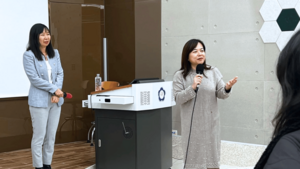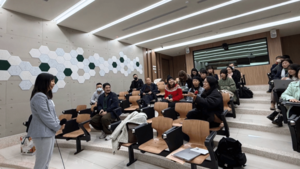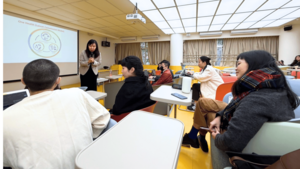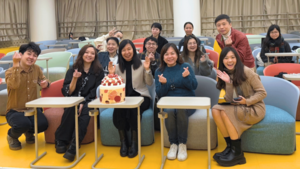May O. Lwin from Singapore’s NTU Leads GCIT Talk on Misinformation and Collaboration





【Article by GCIT】
On December 19, 2024, the Master's Program in Global Communication and Innovation Technology (GCIT) at National Chengchi University (NCCU) hosted a distinguished lecture delivered by Professor May O. Lwin, Dean and President's Chair Professor of Communication at the Wee Kim Wee School of Communication and Information at Nanyang Technological University (NTU). The lecture concentrated on the evolution of medical misinformation and its significant implications for global public health.
Professor Lwin is a recognized authority in health communication and digital health research. Her research covers various infectious diseases, including Zika, Dengue, Influenza, and COVID-19, as well as food and nutrition communication topics. Since her first visit to NCCU in 2019, she has observed how COVID-19 has fundamentally altered global communication paradigms. Through her research on digitally mediated health communication systems, she continues to promote advancements in public health strategies.
Infodemic: A New Challenge in Health Communication
"What has changed since I was last here in 2019?" Professor Lwin reflected on the significant shifts of the past few years. In February 2020, the World Health Organization (WHO) introduced the term "infodemic," marking the beginning of a new era at the intersection of health and technology. "This concept highlights the convergence of health and digital information and signals the need for innovative thinking to address emerging challenges," she remarked.
Professor Lwin's research revealed that the COVID-19 pandemic triggered an unprecedented crisis of trust in government institutions, contrasting sharply with the Zika outbreak in 2017. "During the Zika outbreak, public and governmental communication remained largely aligned, but COVID-19 changed everything. Governments were surprised to find that even scientific information could become a source of misinformation," she explained.
Social media platforms have further exacerbated the spread of misinformation. Enclosed platforms such as Telegram, WeChat, and WhatsApp often act as echo chambers where unverified information circulates unchecked. Professor Lwin cited the infamous rumor suggesting that raw materials for toilet paper were being diverted to produce surgical masks, which sparked panic buying.
"Every country faces unique challenges regarding misinformation, but the Asia-Pacific region is particularly notable," Professor Lwin observed. In countries like Cambodia, Pakistan, and Myanmar, limited infrastructure and cultural and linguistic barriers complicate the dissemination of reliable health information. "Localized research is crucial for developing effective counter-strategies," she urged.
Professor Lwin emphasized that cross-disciplinary collaboration is essential to tackle these challenges. "Health communication research must integrate expertise from communication, public health, and information technology to address the multifaceted nature of the infodemic," she stated. "This is not just a sectoral issue—it's a global challenge requiring collective intelligence."
Advancing Cross-Disciplinary Health Research
On December 20, Professor Lwin hosted an interactive workshop at GCIT that focused on methodologies for cross-disciplinary health communication research. She introduced the innovative concept of "One Health," which emphasizes the interconnectedness of human, animal, and environmental health. Professor Lwin stated, "Our current health systems are too fragmented, with professionals often working in silos. This segmented structure limits collaboration and risks overlooking the holistic nature of health issues."
The workshop featured case studies on health communication strategies aimed at vulnerable populations. Using Singapore's COVID-19 health communication efforts for Southeast Asian migrant workers as an example, Professor Lwin illustrated how culturally nuanced interventions can effectively address public health challenges.
Participants shared research proposals covering various topics, such as mental health, environmental sustainability, and alternative funeral practices, showcasing the next generation's commitment to tackling pressing social issues.
GCIT Director Professor Trisha Lin praised Professor Lwin's lifelong dedication to public health advocacy, stating, "Her contributions to the field are truly inspiring." She encouraged students to pursue meaningful research: "Start with what you are passionate about and make real contributions to the communities you care about."
[此中英文稿和圖片以及全球傳播與創新科技碩士學位學程均獲得中華民國文化部的補助。]


 Fax:886-2-29379611
Fax:886-2-29379611